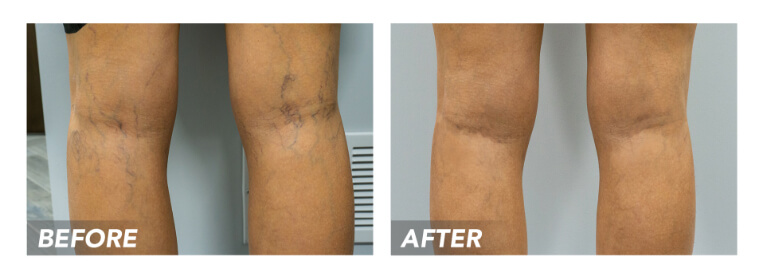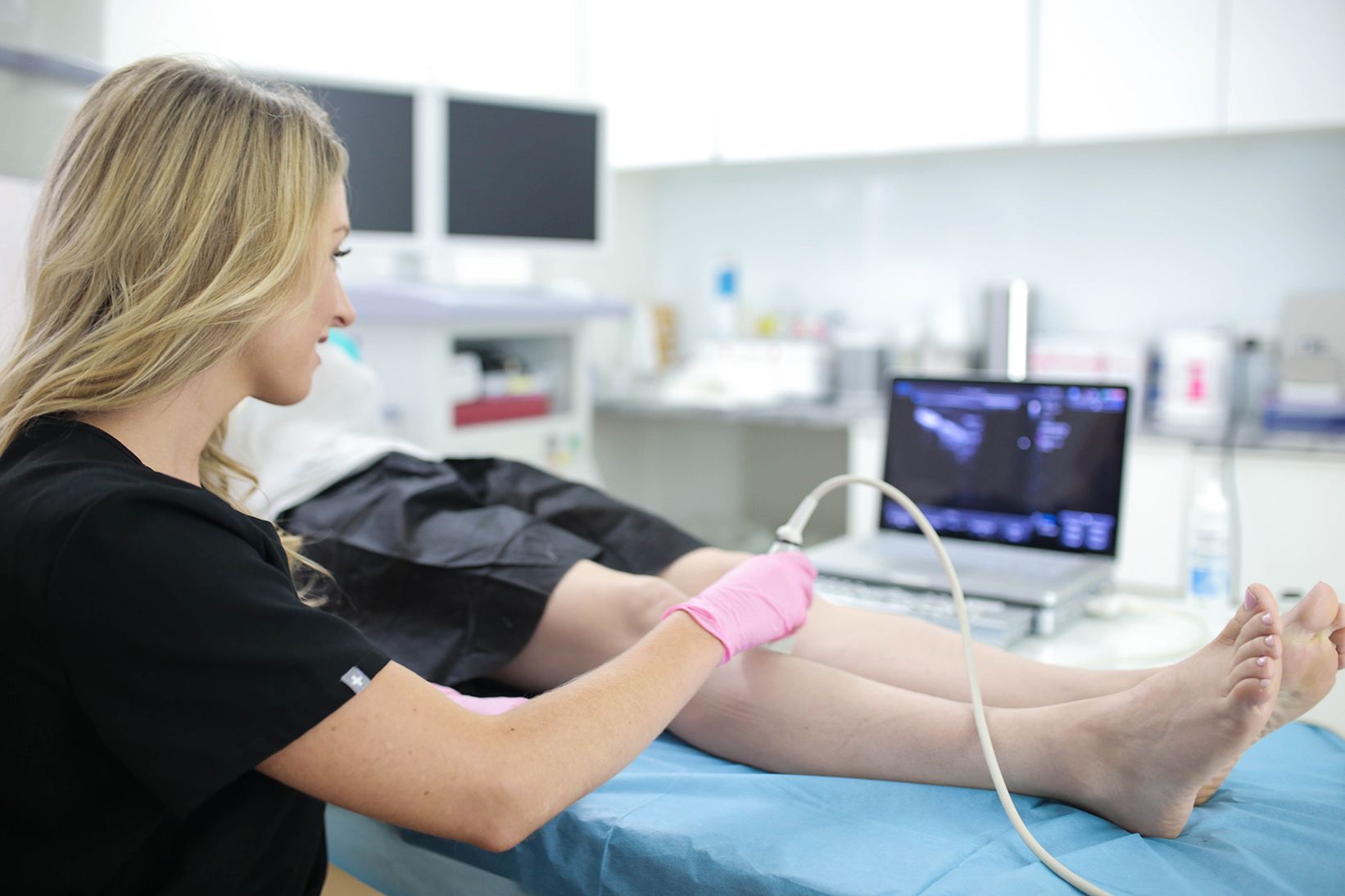When Should I Be Concerned About Leg Swelling? And What Does it Mean?

What are the possible causes of leg swelling?
There are many possible causes of leg swelling, which can make it a difficult symptom to identify. However, some of the most common causes include fluid accumulation, inflammation, chronic venous insufficiency, and deep vein thrombosis (DVT).
Fluid Accumulation
Fluid accumulation, also known as edema, is a common cause of leg swelling. Edema can be caused by a variety of factors, including pregnancy, hormone imbalances, and certain medications. Water retention in the tissues can cause the area to swell. Leg swelling because of fluid accumulation can also happen when someone has a high-sodium diet. The body may also retain fluid when there is liver or kidney disease.
Inflammation
Inflammation is another common cause of leg swelling. Inflammation can be caused by conditions such as arthritis, gout, and infection. When the tissues are inflamed, they can become swollen. If you notice leg swelling after an injury, there’s a strong chance that the swelling will recede naturally, especially if it’s not caused by underlying factors and medical conditions. Your primary care physician can handle inflammation and injuries.

Chronic Venous Insufficiency
Chronic venous insufficiency is a condition that occurs when the veins are unable to effectively pump blood back to the heart. In healthy veins, the valves act as one-way doors to allow deoxygenated blood to flow towards the heart, often against the force of gravity. The collapse of vein valves leads to backward blood circulation and the accumulation of blood in leg veins, leading to leg swelling.
Deep Vein Thrombosis (DVT)
Deep vein thrombosis (DVT) is a condition that occurs when a blood clot forms in the deep veins of the body. This can cause the legs to swell and can be a potentially life-threatening condition. If the blood clots break away, they may travel to the heart and cause a potentially fatal pulmonary embolism. Deep vein thrombosis occurs in chronic venous insufficiency and is left untreated for a long period, so you must seek treatment quickly.
California Vein Treatment is a group of state-of-the-art medical centers for vein treatment in California. Our medical center for vein treatment specializes in minimally invasive procedures that address the root cause of your vein problems. If your leg swelling is caused by underlying vein disease, our vein doctors can offer radiofrequency ablation, endovenous laser ablation, and other minimally invasive procedures to restore optimal blood flow to the heart.
You can find our state-of-the-art medical centers for vein treatment in San Diego and San Jose. Our San Diego office is located in La Jolla, a beautiful neighborhood on the outskirts of San Diego, a short drive from the Westfield UTC shopping center. Our San Jose office is located in the Bay Area in the South Bay, just down the block from the Santa Clara Medical Center. Please schedule an appointment if you have leg swelling and other symptoms of vein disease.
When should I be concerned about leg swelling?
If you have chronic venous insufficiency, you may experience leg swelling. This is because the valves in your veins are not working properly, which causes blood to pool in your legs. Swelling can also occur if you have a blood clot. If your leg swelling is accompanied by other symptoms of chronic venous insufficiency, such as pain, aching, cramping, or tiredness, you should be concerned.
You should also be concerned if the swelling is so severe that it interferes with your daily activities. Furthermore, if the swelling is sudden and severe, or if it is accompanied by shortness of breath, chest pain, or an irregular heartbeat, you should go to the emergency room. These could be signs of a blood clot.
In most cases, leg swelling isn’t a serious problem. But if leg swelling is severe, persistent, or accompanied by other signs of chronic venous insufficiency or other medical conditions, you must contact your vein doctor in California immediately.
How can I reduce leg swelling?
If you want to reduce leg swelling, you can try the following:
- Prop up your legs when you’re lying down. Place pillows under your legs so that your legs are higher than your heart. This will prevent blood accumulation in the leg veins.
- Move around frequently when you’re sitting or standing. This will help to keep the blood flowing in your legs. Improved blood circulation can reduce leg swelling.
- Wear compression stockings. These stockings apply gentle pressure to your legs and help to reduce swelling. They also prevent blood from pooling in your leg veins.
- Exercise regularly. Walking, swimming, and biking are all good exercises for people with leg swelling because they improve blood circulation to the heart and prevent blood pooling.
- Limit your salt intake. Too much salt can cause your body to hold onto water and cause swelling. You can limit your salt intake to reduce water retention and swollen ankles.
- Drink lots of fluids. This will help to flush the salt out of your body.
What are the treatments for leg swelling?
There are many possible treatments for leg swelling, depending on the underlying cause. If the swelling is due to an injury, for example, the treatment will be different than if the swelling is due to a medical condition.
If the swelling is due to an injury, the treatment will typically involve RICE: rest, ice, compression, and elevation. Resting the leg will allow it to heal, while ice and compression can help to reduce the swelling. Elevation can also help to reduce swelling by keeping the leg above the level of the heart.
If the swelling is due to a medical condition, the treatment will depend on the condition. For example, if the swelling is due to chronic venous insufficiency, the treatment will typically involve compression stockings, exercise, elevation, and minimally invasive procedures, such as radiofrequency ablation, endovenous laser ablation, and venaseal.
Your vein doctor will diagnose the root cause of leg swelling and curate a treatment plan.
CA Vein Doctors
Meet our team of California Vein Treatment Specialists
Vein Treatments are covered by most major medical insurances, including Medicare. Call us today to verify your insurance for FREE >

Contact us
CALL US
Speak instantly with one of our team members; they will answer any questions you may have regarding insurance coverage, booking an appointment and our vein treatment locations. (858) 988-3266
BOOK APPOINTMENT
Visit our Book Appointment page and instantly request an appointment at the California vein Tretment. We offer Free Insurance Verification before your appointment.
GET DIRECTIONS
Learn how to get to one of our California vein centers in San Diego & San Jose